11 start with J start with J
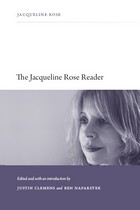
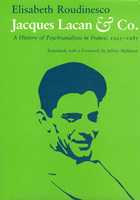
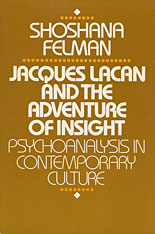
Jacques Lacan, one of the most influential and controversial French thinkers of the twentieth century, was a practicing and teaching psychoanalyst in Paris, but his revolutionary seminars on Freud reached out far beyond professional circles: they were enthusiastically attended by writers, artists, scientists, philosophers, and intellectuals from many disciplines.
Shoshana Felman elucidates the power and originality of Lacan’s work. She brilliantly analyzes Lacan’s investigation of psychoanalysis not as dogma but as an ongoing self-critical process of discovery. By focusing on Lacan’s singular way of making Freud’s thought new again—and of thus enabling us to participate in the very moment of intellectual struggle and insight—Felman shows how this moment of illumination has become crucial to contemporary thinking and has redefined insight as such. This book is a groundbreaking statement not only on Lacan but on psychoanalysis in general.
Felman argues that, contrary to popular opinion, Lacan’s preoccupation is with psychoanalytic practice rather than with theory for its own sake. His true clinical originality consists not in the incidental innovations that separate his theory from other psychoanalytic schools, but in the insight he gives us into the structural foundations of what is common to the practice of all schools: the transference action and the psychoanalytic dialogue. In chapters on Poe’s tale “The Purloined Letter”; Sophocles’s Oedipus plays, a case report by Melanie Klein, and Freud’s writings, Felman demonstrates Lacan’s rediscovery of these texts as renewed and renewable intellectual adventures and as parables of the psychoanalytic encounter. The book explores these questions: How and why does psychoanalytic practice work? What accounts for clinical success? What did Freud learn from the literary Oedipus, and how does Freud text take us beyond Oedipus? How does psychoanalysis inform, and radically displace, our conception of what learning is and of what reading is?
This book will be an intellectual event not only for clinicians and literary critics, but also for the broader audience of readers interested in contemporary thought.
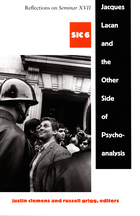
The contributors examine Lacan’s theory of the four discourses, his critique of the Oedipus complex and the superego, the role of primal affects in political life, and his prophetic grasp of twenty-first-century developments. They take up these issues in detail, illuminating the Lacanian concepts with in-depth discussions of shame and guilt, literature and intimacy, femininity, perversion, authority and revolt, and the discourse of marketing and political rhetoric. Topics of more specific psychoanalytic interest include the role of objet a, philosophy and psychoanalysis, the status of knowledge, and the relation between psychoanalytic practices and the modern university.
Contributors. Geoff Boucher, Marie-Hélène Brousse, Justin Clemens, Mladen Dolar, Oliver Feltham, Russell Grigg, Pierre-Gilles Guéguen, Dominique Hecq, Dominiek Hoens, Éric Laurent, Juliet Flower MacCannell, Jacques-Alain Miller, Ellie Ragland, Matthew Sharpe, Paul Verhaeghe, Slavoj Žižek, Alenka Zupancic
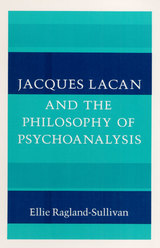



James Jackson Putnam was an established sixty-three-year-old Boston physician and Harvard professor of neurology when he and William James traveled to Clark University to hear Sigmund Freud's lectures on psychoanalysis. Putnam had become interested in psychoanalytic theory three years earlier in 1906; and, in 1908, his interest had been renewed when he met Freud's first English-speaking follower, twenty-eight-year-old Ernest Jones. It still surprised and even disturbed his friends, however, when Putnam became Freud's first American convert as well as a founder and first president of the American Psychoanalytic Association in 1911, and of the Boston Society for Psychoanalysis in 1914.
Of the 172 letters in this volume 163 are published here for the first time. All of the letters present new perspectives on the origins and early development of psychoanalysis in the United States. They provide the first documentary account of the founding of the American psychoanalytic organizations and the battles that surrounded the first public presentations of the psychoanalytic cause in Europe and America. They dramatize the extent to which Freud and Jones used Putnam as a confidant and how important Putnam's Yankee fairness, objectivity, and personal integrity were to the movement.
It is intriguing to discover how these men, long before formal training centers were established, educated each other by mail and learned by letters how to handle psychoanalytic problems never recognized or encountered before. Theory was debated as well, and the 89 letters between Putnam and Freud indicate how Freud's increasingly disillusioned stoicism clashed with Putnam's New England optimism and formed the basis for a significant dialogue on the nature of man, ethics, and the psychoanalytic mission. The letters suggest that Putnam encouraged Freud's interest in the analysis of conscience and of religion that Wilhelm Wundt and Carl Jung had earlier awakened. Nathan G. Hale, Jr., in an introductory essay, provides the background and the explanation for the surprising role Putnam played in what he came to call the "cause." Marian C. Putnam, who made the unpublished letters available, has written a warm recollection of her father. Judith Bernays Heller, Freud's niece, has translated the German texts, which are also published in the original German.
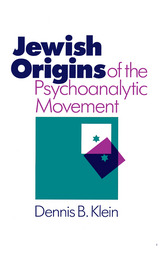
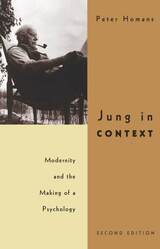
"Jung in Context is an intellectual triumph. . . . Utilizes the resources of biography, psychology, sociology, and theology to probe the genesis of a psychological system which is currently enjoying a wide following. . . . A splendid job."—Lewis R. Rambo, Psychiatry
"Anyone seeking an introduction to Jung's thought will find a masterful précis here."—Jan Goldstein, Journal of Sociology
"An unusually perceptive and clearly written book. . . . An important advance in the understanding of Jung, and Homans's methodology sets the stage for all future efforts to understand psychological innovators."—Herbert H. Stroup, Christian Century
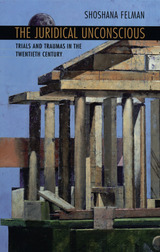
Death, wrote Walter Benjamin, lends storytellers all their authority. How do trials, in turn, borrow their authority from death? This book offers a groundbreaking account of the surprising interaction between trauma and justice.
Moving from texts by Arendt, Benjamin, Freud, Zola, and Tolstoy to the Dreyfus and Nuremberg trials, as well as the trials of O. J. Simpson and Adolf Eichmann, Shoshana Felman argues that the adjudication of collective traumas in the twentieth century transformed both culture and law. This transformation took place through legal cases that put history itself on trial, and that provided a stage for the expression of the persecuted--the historically "expressionless."
Examining legal events that tried to repair the crimes and injuries of history, Felman reveals the "juridical unconscious" of trials and brilliantly shows how this juridical unconscious is bound up with the logic of the trauma that a trial attempts to articulate and contain but so often reenacts and repeats. Her book gives the drama of the law a new jurisprudential dimension and reveals the relation between law and literature in a new light.
READERS
Browse our collection.
PUBLISHERS
See BiblioVault's publisher services.
STUDENT SERVICES
Files for college accessibility offices.
UChicago Accessibility Resources
home | accessibility | search | about | contact us
BiblioVault ® 2001 - 2024
The University of Chicago Press









